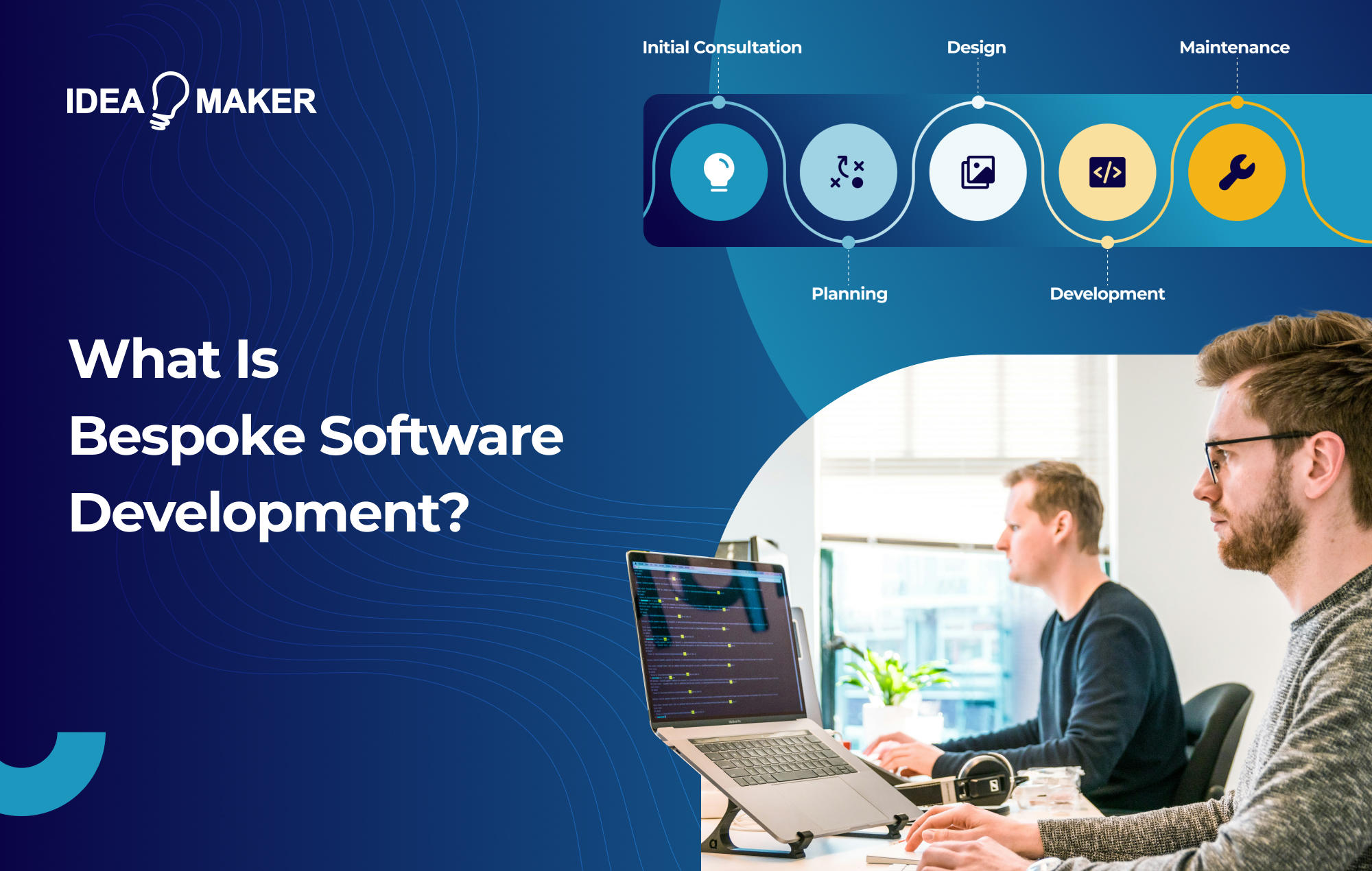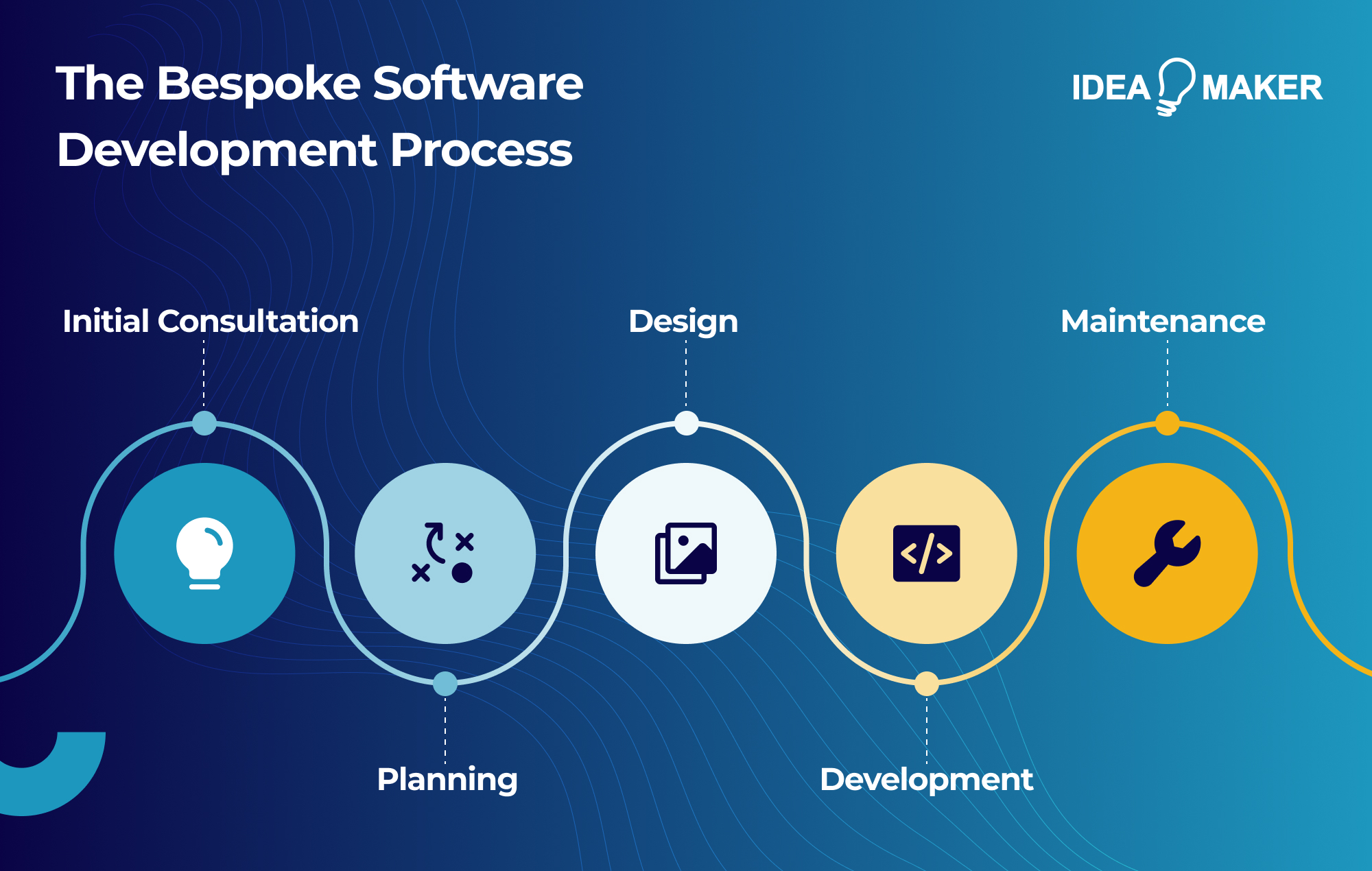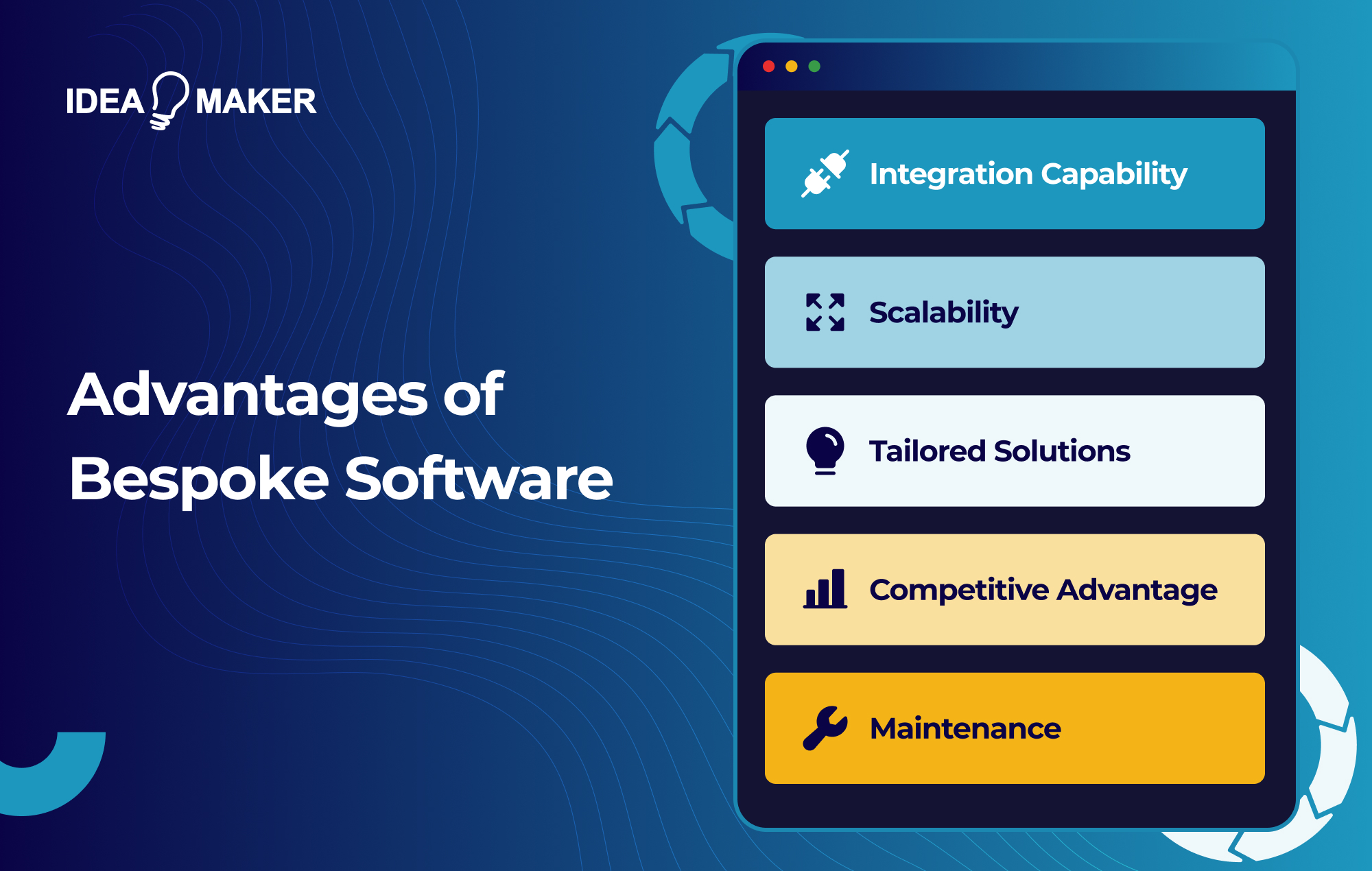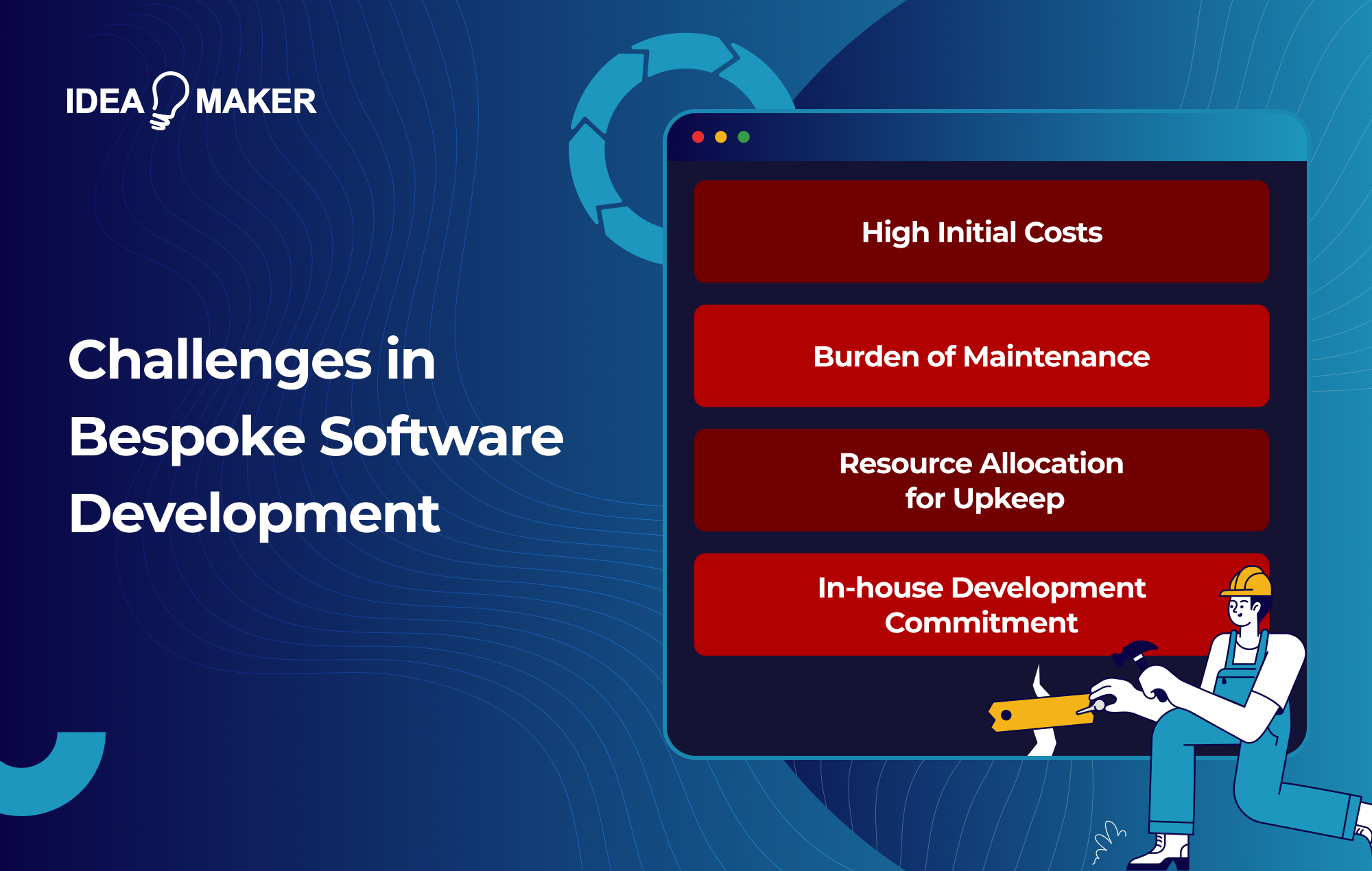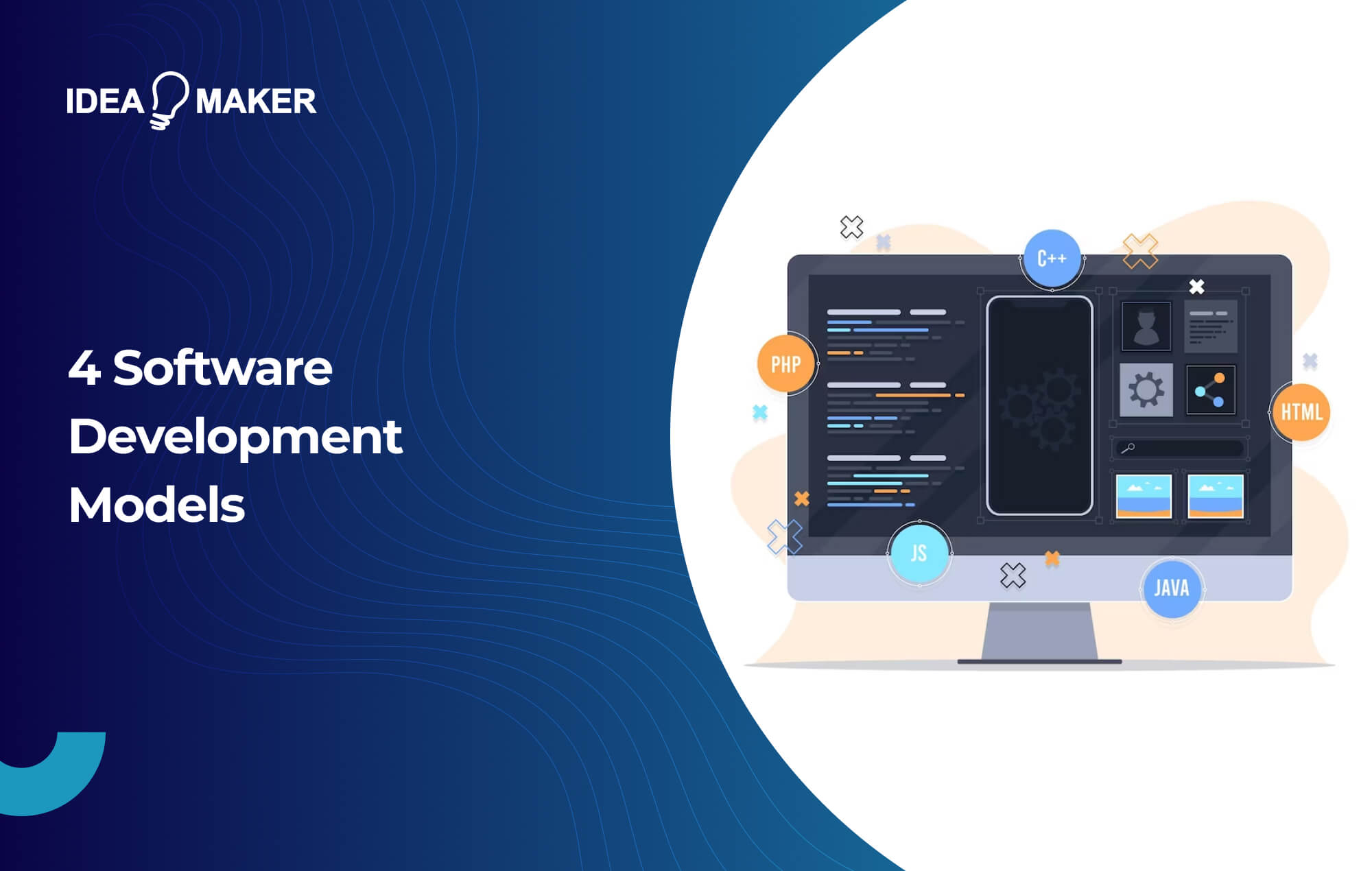Table of Contents
For businesses, investing in high-quality software is paramount to your operations, as the right solution can streamline workflows and enhance the customer experience. However, most off-the-shelf products actually prevent businesses from reaching their full potential.
Although ready-made software may feature some of the functionality you need, there’s a whole world of perfectly tailored functionality available with bespoke software development. Plus, with digital competition constantly increasing, having a bespoke solution is a sure-fire way for businesses to achieve long-term success.
In this article, we explore the benefits and challenges of bespoke software and explain why it’s vital for businesses in 2024. Keep reading to learn more.
What Is Bespoke Software?
Bespoke development refers to software made from scratch for a specific purpose, usually to meet the individual needs of a business. While custom software development offers a similar service, it may still use existing software elements such as APIs and design templates. Bespoke software, however, brings a completely unique experience.
The inception of bespoke software development dates back to the dawn of computers, as each machine and function required some form of specialized development. Additionally, in the early ‘80s and late 20th century, off-the-shelf solutions – that is, prebuilt applications made for more general purposes – were scarce, necessitating bespoke and custom software for business use.
Characteristics of Bespoke Software
There are several key characteristics that comprise the core tenets of bespoke software development. Primarily, bespoke software is known for tailor-made solutions that perfectly match functionality and design with business requirements. This level of tailoring, especially significant for custom software for small businesses, helps companies achieve their business objectives and streamline daily operations with maximum efficiency.
Bespoke software is also characterized by its flexibility and scalability, allowing it to effortlessly meet changing business requirements. For example, as your user base grows, your business must be able to quickly respond to increased demand. With bespoke software, you’re in control of server capacity and functionality, meaning you can easily increase how many users your system can handle. In other words, bespoke software grows with your business.
The Bespoke Software Development Process
Bespoke software development follows a similar process to other types of software, but with a greater focus on planning and design to more accurately meet business needs. For best results, bespoke software should be built following an iterative approach to ensure development flexibility. Below, we’ve outlined some of the key steps involved in the bespoke software development process.
Initial Consultation
All software development projects should begin with an initial consultation. This is especially important for bespoke software development due to the uniquely tailored nature of its functionality. During the initial consultation, you and your development team will discuss your business, brand, and mission, as well as what goals you hope to achieve using bespoke software. Here, you’ll also begin outlining the exact features your business requires from your bespoke software.
Planning
Following the initial consultation, your development team will get to work on the planning phase. This involves creating a project spec that outlines functionality, user permissions, and any requirements that you earlier specified. Once the project specification is complete, you’ll be asked for your approval. If you’re happy with the suggested features and functionality, the team can go ahead and begin organizing the design and development of your project. If you’re not happy, then changes to the spec should be made before moving forward.
Design
The next stage is the design stage, which is split into two phases: wireframing and aesthetic design. Your development team will first create a barebones wireframe that serves only to outline how your software will function and where interactive interface elements will be placed. This gives you the chance to demo your software before the development phase begins, ensuring that all is correct. After creating a wireframe, the development team will then flesh it out with aesthetic visual design that marries functionality with your brand.
Development
Once you’re satisfied with your software design, the development team gets to work actually building your software. Most developers will take an iterative approach to development, meaning your software will be built in several stages or “iterations.” With this method, each iteration is developed and tested, then the next iteration is developed and merged with existing iterations. After all interactions are complete, the whole platform is tested as one cohesive product. This allows you to make modifications with each iteration if necessary, while quickly having a tangible application version to play with.
Maintenance
Once your bespoke software is developed and delivered to your servers, the maintenance stage begins. Ideally, your software will undergo continued maintenance throughout its use to ensure it consistently facilitates a smooth user experience and delivers the required functionality. This is an essential component of the development process, so be sure to talk to your development team about post-release support options.
Advantages of Bespoke Software
If you’re here, you must be curious about implementing bespoke software development into your business. From high integration capabilities to effortless maintenance, let’s explore the advantages of developing your own bespoke software.
Integration Capability
Bespoke software brings a wide range of integration capabilities that you otherwise wouldn’t find with off-the-shelf applications. For example, with bespoke software, businesses can integrate third-party APIs, like Google Maps or ChatGPT, and even create a custom API that enables the software to be integrated with third-party applications. Tools like a gRPC test tool allow developers to simulate realistic traffic patterns, including unary requests and bidirectional streaming, ensuring seamless API integration and performance. This makes extending the functionality of your application easy and cost-effective, while also providing convenient services to users, such as Google sign-in or OneDrive backup.
Scalability
With bespoke software, businesses aren’t limited in terms of scalability, as you can control user limits and available features. Bespoke software also gives you the freedom to extend server capacity and hardware compatibility. For instance, if you expand your workforce or user base, you can easily upgrade servers to handle more traffic. Similarly, if you decide to upgrade your office hardware to a new operating system, you can modify your bespoke software to ensure it’s compatible.
Tailored Solutions
Bespoke software is built to your business’s exact specifications, meaning you can have the functionality you require no matter how unique it may be. Tailored solutions are crucial for businesses looking to effectively streamline daily operations, as off-the-shelf software can only go so far. Think of it like this: while you could technically wear a pair of shoes that are two sizes too small, they’re not going to provide the comfort you need. Off-the-shelf software is two sizes too small for your business, but bespoke software fits your needs perfectly.
Competitive Advantage
While competitors are stuck using off-the-shelf software that fails to provide the exact functionality they need, you can rest easy knowing that you have a competitive advantage with bespoke software. This is because bespoke software helps to streamline your processes, enabling your business to work more efficiently than competitors who do not utilize tailored applications. As a result, your business is poised to outperform the competition in terms of efficiency and output.
Support and Maintenance
When you build a bespoke application, you work directly with the development team and have complete control over support and maintenance. This means that, if an issue arises, you can quickly have it fixed before it impacts your users and operations. Similarly, if you identify a need for new features, you can return to your development team and contract them for more work. The level of control you’re afforded when developing your own bespoke software ultimately ensures ongoing support and maintenance that’s relatively effortless and pain-free.
Considering Costs and ROI
The obvious drawback of bespoke software is the high initial startup costs. However, the return on investment (ROI) you stand to gain – whether that be in paid user signups or increased productivity, leading to more sales – is certainly greater than the cost. With its ability to ensure significant long-term value, bespoke software is essentially an investment in your business’s future, albeit with its own set of risks.
Besides, you might not have to pay a high initial fee with off-the-shelf software, but some enterprise applications charge hundreds of dollars each month in subscription fees. Over time, you’ll end up paying more for a generic product that doesn’t offer customization options or ownership rights than you would be building your own software with a well-planned budget.
Challenges in Bespoke Software Development
While bespoke software provides an impressive array of benefits, it comes with some challenges, too. In addition to high initial costs, bespoke software’s flexible maintenance options, though advantageous, can also be a burden. For instance, with a bespoke application, you commit to its long-term upkeep, requiring ongoing resources. However, this is really only a problem if you’re building your software using an in-house development team.
Your best bet is to hire an expert bespoke software development agency . But, to ensure you choose a quality team, it’s vital to thoroughly examine the developer’s portfolio, review client testimonials, and explore their post-release support options. In our guide on outsourcing development, you’ll find everything you need to know about hiring a bespoke software development team, so you can confidently make the right choice for your business.
Final Thoughts
In summary, bespoke software development facilitates completely customized applications tailored to your exact business needs. The process involves extensive planning and design stages to build software that seamlessly matches your requirements, ensuring countless benefits such as streamlined operations, unlimited scalability, and an edge over your competition.
Though bespoke solutions do require an initial investment and ongoing maintenance commitment, companies can leverage their powerful capabilities to accelerate business growth and experience long-term returns. Businesses can also maximize the value of bespoke software by partnering with an expert development team that offers robust post-release support options.
Transform Your Business With Bespoke Software From Idea Maker
If you’ve made it this far, you’re likely considering investing in bespoke software development. The great news? You’re in the right place. At Idea Maker, we have nearly a decade of experience in delivering high-quality bespoke applications for businesses in various industries, from real estate to aviation marketing. Our experts are well versed in bespoke development and dedicated to helping businesses grow through software. So, what are you waiting for? Book a consultation with us today to learn more about how you can get started designing your perfect software solution.
